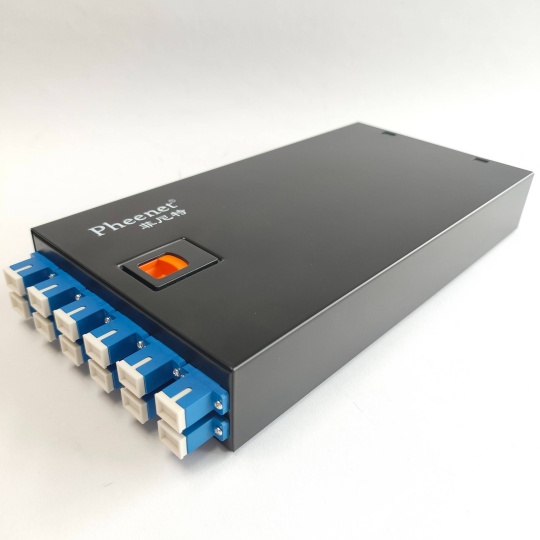Industrial Cable Assemblies for CAN Bus: Key Considerations for Relia...
In industrial environments—from factory automation and automotive manufacturing to heavy machinery and smart logistics—CAN (Controller Area Network) bus systems serve as the “nervous system” for real-time data transmission between sensors, controllers, and actuators. However, the performance of a CAN bus network hinges entirely on its industrial cable assemblies. Unlike standard cables, these assemblies are engineered to address the unique challenges of industrial settings, ensuring stable signal transmission, resistance to harsh conditions, and long-term durability. Below is a detailed breakdown of their critical attributes, selection criteria, and maintenance tips to maximize network efficiency.
1. Core Characteristics of High-Performance CAN Bus Cable Assemblies
Industrial environments demand cable assemblies that go beyond basic signal transmission. The following features are non-negotiable for reliable CAN bus operation:
- Signal Integrity Optimization: CAN bus systems (e.g., CAN 2.0A/B, CAN FD) require precise impedance matching—typically 120Ω—to minimize signal reflection and attenuation. High-quality assemblies use twisted-pair conductors (24–22 AWG) to reduce crosstalk, while consistent conductor spacing and insulation materials (e.g., XLPE, PP) ensure stable impedance across temperature fluctuations (-40°C to 105°C or higher).
- Robust EMI/RFI Shielding: Industrial floors are filled with electromagnetic interference (EMI) from motors, inverters, and power tools, and radio-frequency interference (RFI) from wireless devices. Effective shielding is critical: most industrial CAN assemblies use a combination of aluminum foil (for full coverage) and tinned copper braid (for mechanical strength), with a drain wire for secure grounding. This design blocks external interference and prevents the cable itself from emitting noise that disrupts other systems.
- Mechanical & Environmental Durability: Cables in industrial settings face constant stress—vibration, abrasion, oil exposure, and chemical splashes. Premium assemblies use outer jackets made of PUR (Polyurethane) or TPU (Thermoplastic Polyurethane) for superior flexibility and resistance to oils, greases, and solvents. For harsh outdoor or washdown applications (e.g., food processing), jackets may also be rated IP67/IP68 for water and dust protection.
2. Key Selection Criteria for Industrial CAN Bus Cable Assemblies
Choosing the right assembly requires aligning its specifications with your application’s unique needs. Avoid one-size-fits-all solutions by focusing on these factors:
- Match to Application Environment:
- For automotive or heavy machinery: Prioritize oil resistance (PUR jackets) and vibration tolerance.
- For food/pharmaceutical facilities: Select FDA-compliant, easy-to-clean jackets (e.g., smooth PVC or PUR) to meet hygiene standards.
- For extreme temperatures: Opt for high-temperature insulation (e.g., PTFE) for operations above 125°C, or low-temperature-rated materials for cold storage.
- Align with CAN Bus Protocol Requirements:CAN FD (Flexible Data Rate) systems, which support higher speeds (up to 8 Mbps) and larger data frames, require cables with tighter impedance control and lower capacitance than standard CAN 2.0. Ensure the assembly is labeled as “CAN FD-compatible” to avoid performance bottlenecks.
- Verify Connector Compatibility & Quality:The connector is often the weakest link in a cable assembly. Industrial CAN systems commonly use M12 connectors (male/female, 3-pin or 5-pin) for ruggedness, or DB9 connectors for legacy equipment. Look for connectors with gold-plated contacts (to resist corrosion) and IP-rated housings (IP65/IP67) for dust/water protection. Ensure the assembly’s connector pinout matches your device (e.g., CAN_H, CAN_L, GND).
- Check Industry Certifications:Compliance with global standards guarantees safety and interoperability. Look for assemblies certified to:
- UL/CSA: For North American electrical safety.
- CE: For European EMC (Electromagnetic Compatibility) and low-voltage directives.
- RoHS: To ensure no hazardous substances (e.g., lead, mercury) are used, critical for environmental compliance.
3. Installation & Maintenance Best Practices
Even the highest-quality cable assembly will underperform without proper installation and care. Follow these guidelines to extend its lifespan and prevent network downtime:
- Avoid Excessive Bending or Tension: Respect the assembly’s minimum bend radius (typically 5–10x the cable diameter). Bending beyond this limit can damage the shield or conductors, leading to signal loss. Also, avoid pulling the cable by the connector—use the jacket for handling.
- Ensure Proper Shield Grounding: Only ground the shield on one end (e.g., at the controller) to prevent ground loops, which cause noise in the CAN bus. Use a dedicated ground terminal (not shared with power grounds) for optimal results.
- Conduct Regular Inspections: Schedule monthly checks for:
- Jacket damage (cracks, cuts, or oil swelling).
- Loose or corroded connectors.
- Shield continuity (use a multimeter to test resistance between the drain wire and connector shell).Replace assemblies at the first sign of wear to avoid unexpected system failures.
Trust FRS for Your Industrial CAN Bus Cable Assembly Needs
When reliability, performance, and durability matter, FRS’s industrial cable assembly factory delivers solutions tailored to your CAN bus requirements. With decades of expertise in industrial connectivity, FRS uses only premium materials—from twisted-pair conductors and EMI-resistant shielding to oil- and chemical-proof jackets—to ensure consistent signal transmission in the harshest environments.
FRS offers full customization: whether you need CAN FD-compatible assemblies with M12 connectors for factory automation, FDA-approved options for food processing, or high-temperature designs for heavy machinery, our team works with you to meet exact specifications. Every assembly undergoes strict quality testing (including impedance verification and shielding effectiveness checks) and complies with UL, CE, and RoHS standards, ensuring seamless integration and long-term reliability.
For industrial CAN bus cable assemblies that minimize downtime and maximize productivity, choose FRS—your partner in robust industrial connectivity.











